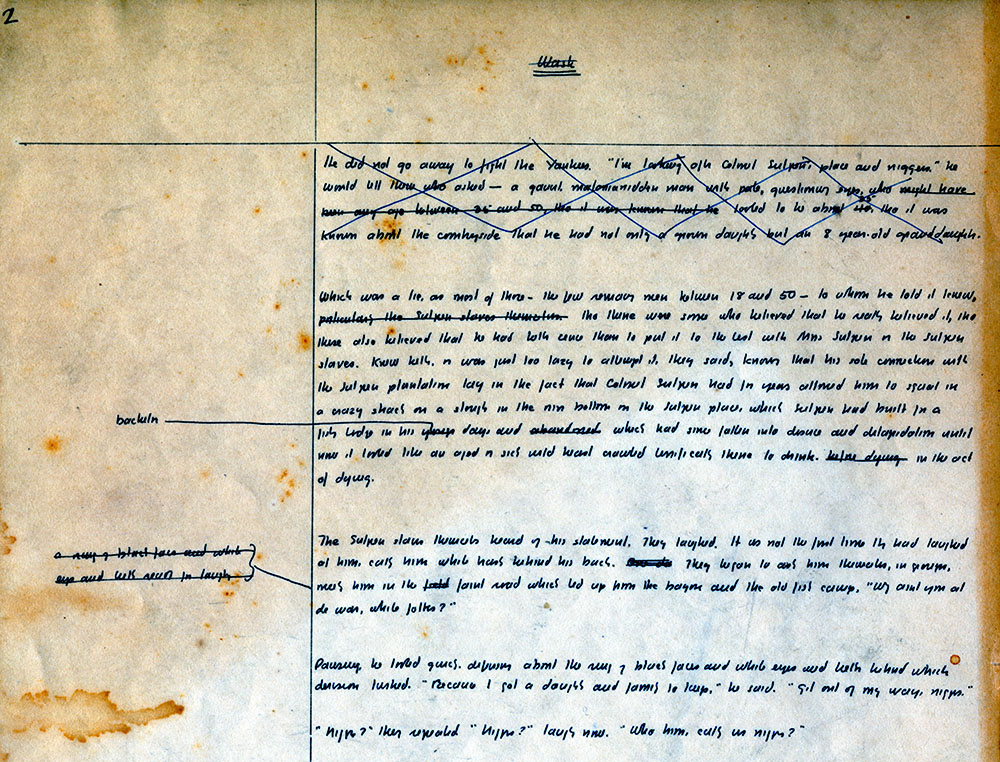TRANSCRIPTION
<He did not go away to fight the Yankees. "I'm looking after Colonel Sutpen's place and niggers," he
would tell those who asked—a gaunt, malariaridden man with pale, questioning eyes, who <<might have
been any age between 35 and 50, tho it was known that he>> looked to be about <<40>> [35], tho it was
known about the countryside that he had not only a grown daughter but an 8 year-old granddaughter.>
Which was a lie, as most of those—the few remaining men between 18 and 50—to whom he told it knew,
<particularly the Sutpen slaves themselves> tho there were some who believed that he really believed it, tho
these also believed that he had better sense than to put it to the test with Mrs Sutpen or the Sutpen
slaves. Knew better, or was just too lazy to attempt it, they said, knowing that his sole connection with
the Sutpen plantation lay in the fact that Colonel Sutpen had for years allowed him to squat in
a crazy shack on a slough in the river bottom on the Sutpen place, which Sutpen had built for a
fishing lodge in his <younger>
[margin: bachelor]
days and <abandoned> which had since fallen into disuse and dilapidation until
now it looked like an aged or sick wild beast crawled terrifically there to drink <before dying> in the act
of dying.
The Sutpen slaves themselves heard of his statement. They laughed. It was not the first time they had laughed
at him, calling him white trash behind his back. <One da> They began to ask themselves, in groups,
<[margin: a ring of black faces and white eyes and teeth [illegible] for laughing>
meeting him in the <field> faint road which led up from the bayou and the old fish camp. "Why aint you at
de war, white folks?
Pausing, he looked quick, defensive about the ring of black faces and white eyes and teeth behind which
derision lurked. "Because I got a daughter and family to keep," he said. "Git out of my way, niggers."
"Niggers?" they repeated. "Niggers?" laughing now. "Who him, calling us niggers?"
|


